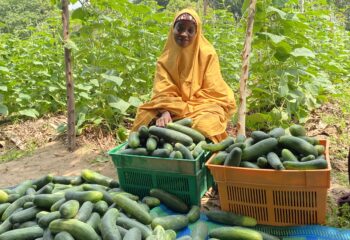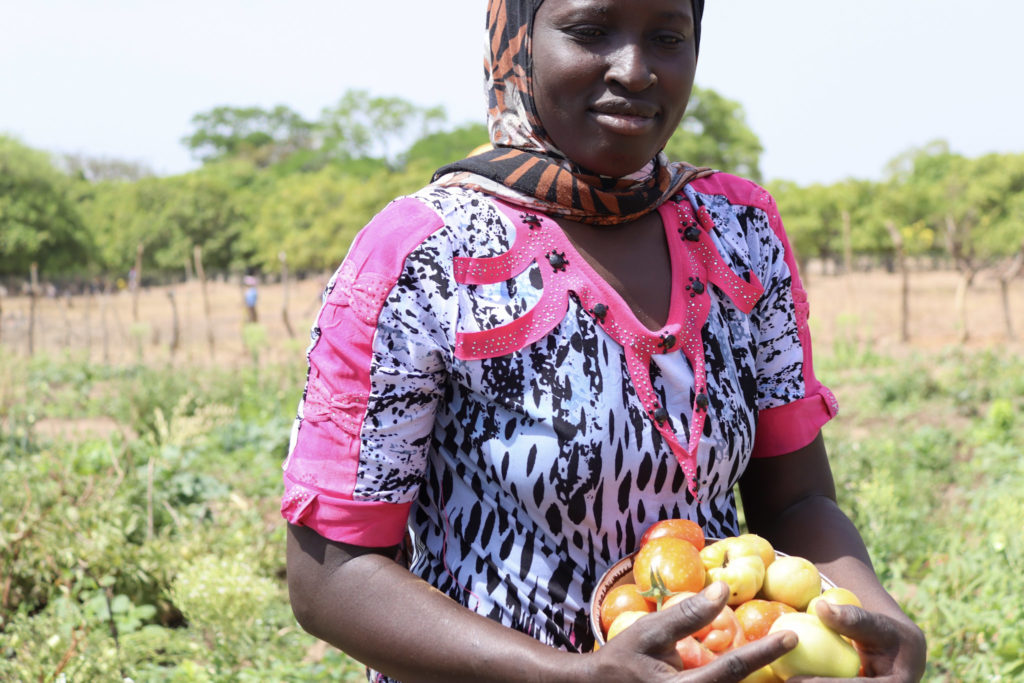
Aida Koné is a member of the Benkadi Cooperative in Falaba, Zantiébougou commune, Bougouni, Mali. The small vegetable garden that the members of this cooperative previously cultivated had been abandoned due to a lack of funds.
With assistance from the Feed the Future Mali Sènè Yiriwa Agricultural Production Activities in Sikasso project, the cooperative chose Aida as an agricultural extension worker. Like the other agricultural extension workers for the project, Aida was trained on making compost, market gardening, seed selection, microdosing and fertilizer deep placement, good harvesting and post-harvest practices for cereals and legumes, proper use of agricultural inputs, water and soil conservation techniques, and cooperative management.
Here is her story.
I shared everything I learned from Feed the Future Mali Sènè Yiriwa with the producers of our village after the training. Thanks to capacity building on the management of agricultural cooperatives, we have revitalized our Benkadi Cooperative in Falaba.
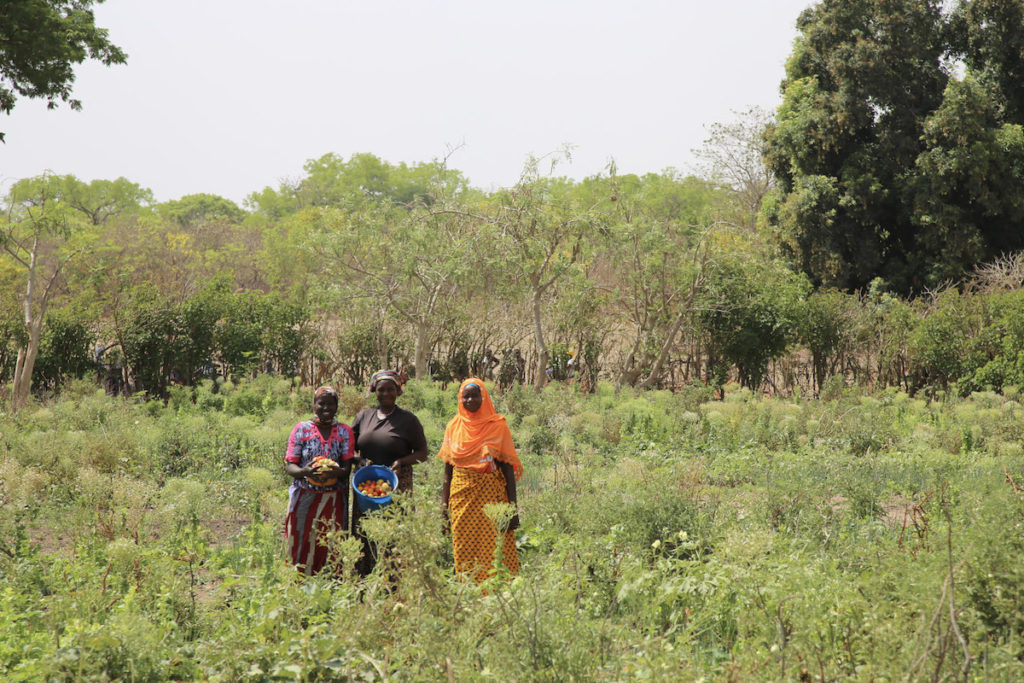
We had a small garden that had fallen into a state of disrepair. During the working sessions with Feed the Future Mali Sènè Yiriwa, we requested the garden be rehabilitated. The project team explained that this requires the submission of a plan. However, they explained to us that if we got organized and revitalized the cooperative, starting by respecting our obligations as members by paying our dues, we could restore the garden ourselves. This we did. The members of the cooperative started by contributing 500 CFA francs, then 1,000 CFA francs, until we finally had 300,000 CFA francs (about $500 USD). With this, we paid for fences, wood, and labor and dug a well that we will soon plaster on the inside. Thanks to the implementation of these tips from Feed the Future Mali Sènè Yiriwa, we have realized that we can achieve a lot on our own.
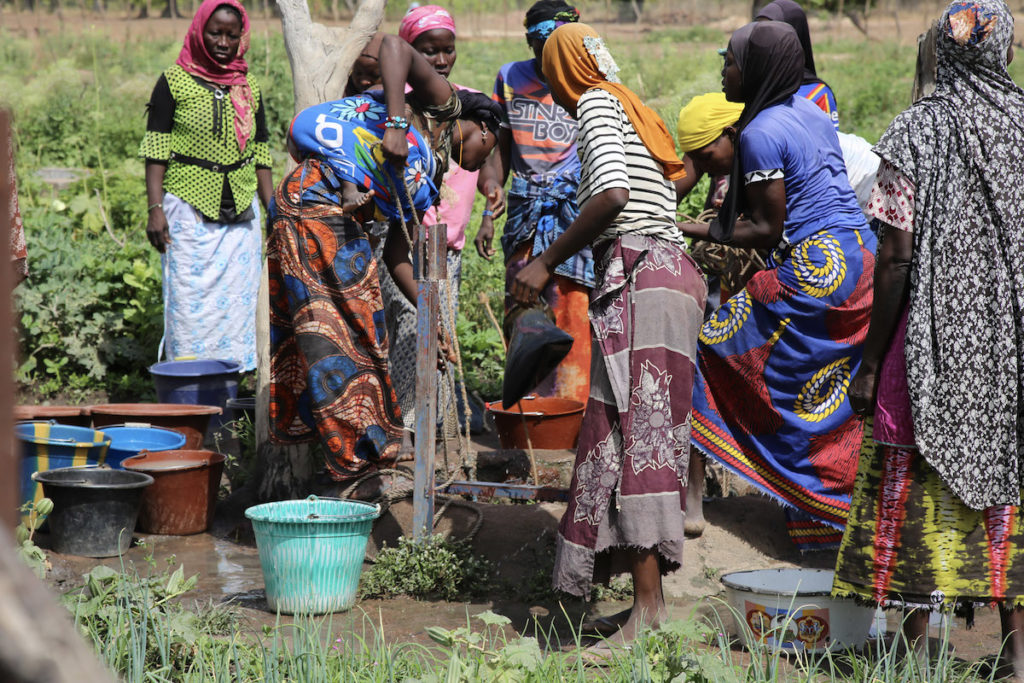
With our commitment, we were able to rehabilitate the garden and expand it from 0.25 hectares to 0.5 hectares. This achievement has opened up other partnerships for us. For example, representatives from the World Food Programme came to see the garden and asked us if we accomplished this on our own. We told them how we had rehabilitated this vegetable garden thanks to support from Feed the Future Mali Sènè Yiriwa, funded by the U.S. Agency for International Development (USAID). The World Food Programme commended our effort and fenced 1 hectare of land for the women of the village. The partner also paid for labor to dig 15 compost pits. We then filled these pits ourselves because we had already received training from Feed the Future Mali Sènè Yiriwa on making compost.
Market gardening is an important activity for us women in Falaba. It is a source of income that allows us to contribute to household expenses and the children’s schooling. The products of this garden also allow us to balance the diet of the whole family and avoid malnutrition. Thanks to this activity, we, the women of the village, have not had to cut wood this year.
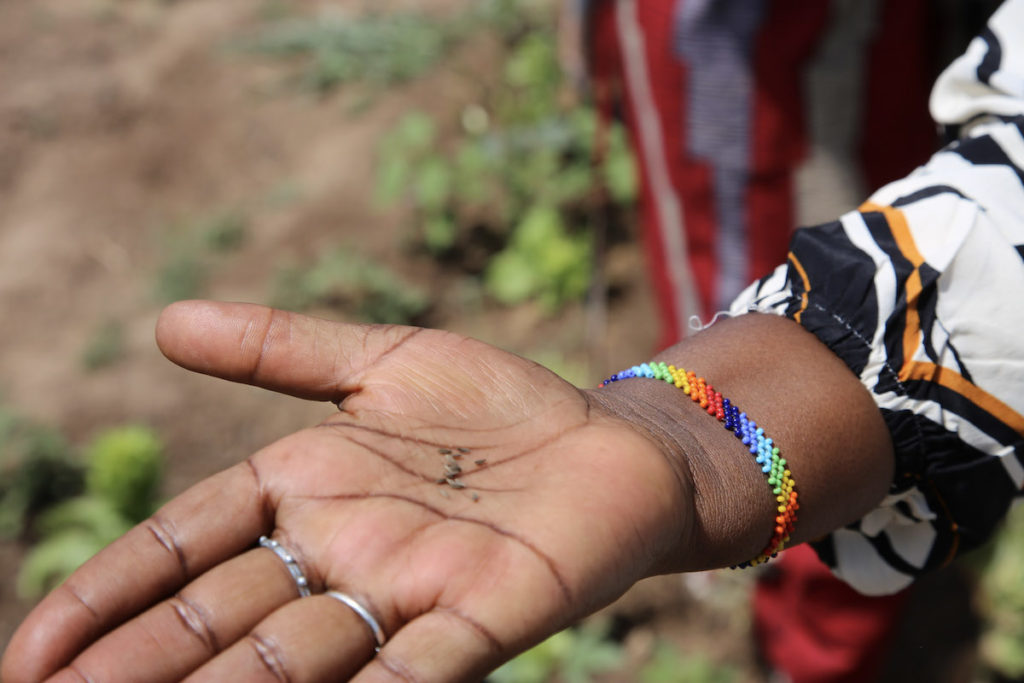
We hope to extend the vegetable garden over the entire fenced area. Increasing the size of the garden will allow many women in the village to not only have a larger area to work, but also bring in more income. We know that this garden is the beginning of a great and beautiful journey to help our community.
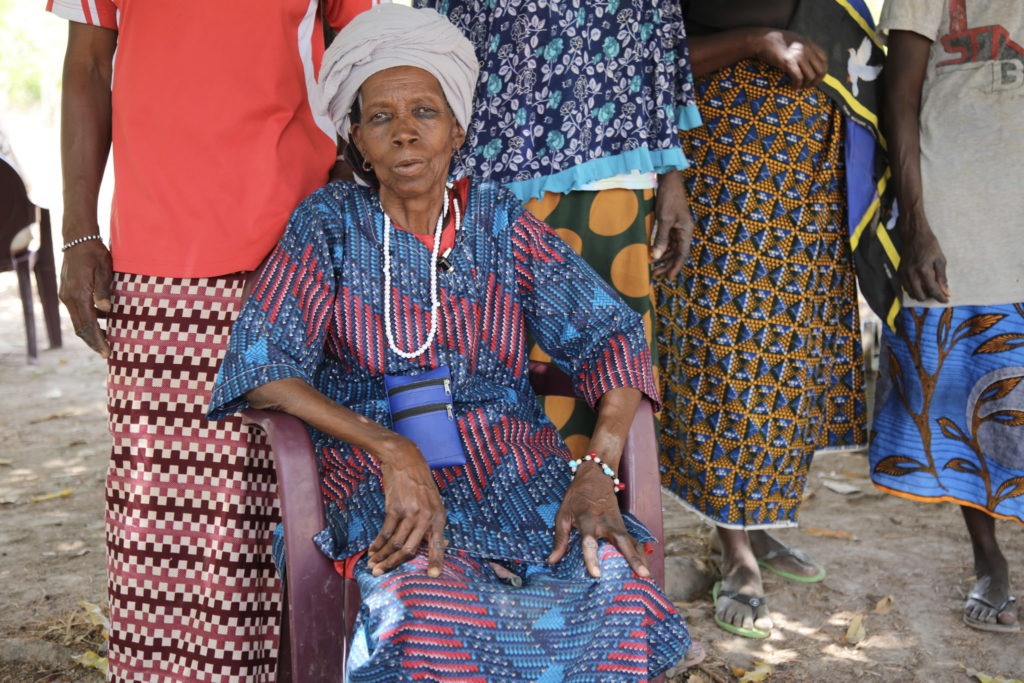
Diarra Bagayogo, president of the Benkadi Cooperative of Falaba, praised Aida’s commitment: “Aida Koné has served the cooperative greatly since she became an extension worker. She regularly gives us feedback on everything she has learned from Feed the Future Mali Sènè Yiriwa. Thanks to her courage and commitment, we have gained new partners, and the membership of the cooperative has increased. All the women want to join now. We went from 80 members to more than 200 members. In addition, Aida was guided by Feed the Future Mali Sènè Yiriwa to plan projects for the cooperative. Now, we have a plan for a project on agricultural machinery that we will submit.”
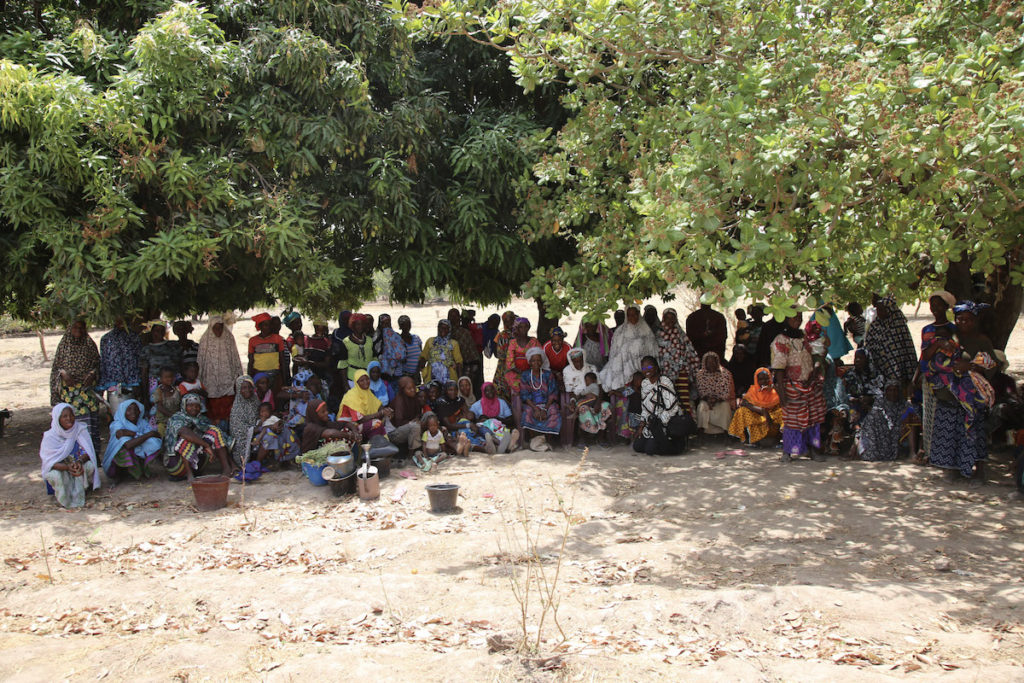
Feed the Future Mali Sènè Yiriwa is building the capacity of 230 agricultural extension workers, including 57 women. Through these extension workers, agricultural organizations, and their members, farmers in the Sikasso region have received training on topics such as agricultural techniques and technologies, digitalization of agricultural information, and cooperative management. In 2022, Feed the Future Mali Sènè Yiriwa extension workers delivered training to 21,520 farmers on 18 agronomy and livestock topics.
More about the Feed the Future Sènè Yiriwa Project
Funded by the U.S. Agency for International Development (USAID), the Feed the Future Mali Sènè Yiriwa Agricultural Production Activities in Sikasso project is implemented by RTI International, in collaboration with its consortium partners: Association des Organisations Professionnelles Paysannes (AOPP), Interchurch Organization for Development Cooperation (ICCO), IFDC, Institut Polytechnique Rural de Formation et de Recherche Appliquée (IPR-IFRA), North Carolina Agricultural and Technical State University, and Vétérinaires Sans Frontières (VSF).
The Feed the Future Sènè Yiriwa Agricultural Production Activities in Sikasso project’s objective is to sustainably scale up the productivity of key value chains, leading to better consumption of nutritious food and resilience of farm households. This is achieved through a farmer-centered approach, which capitalizes on existing producers.



